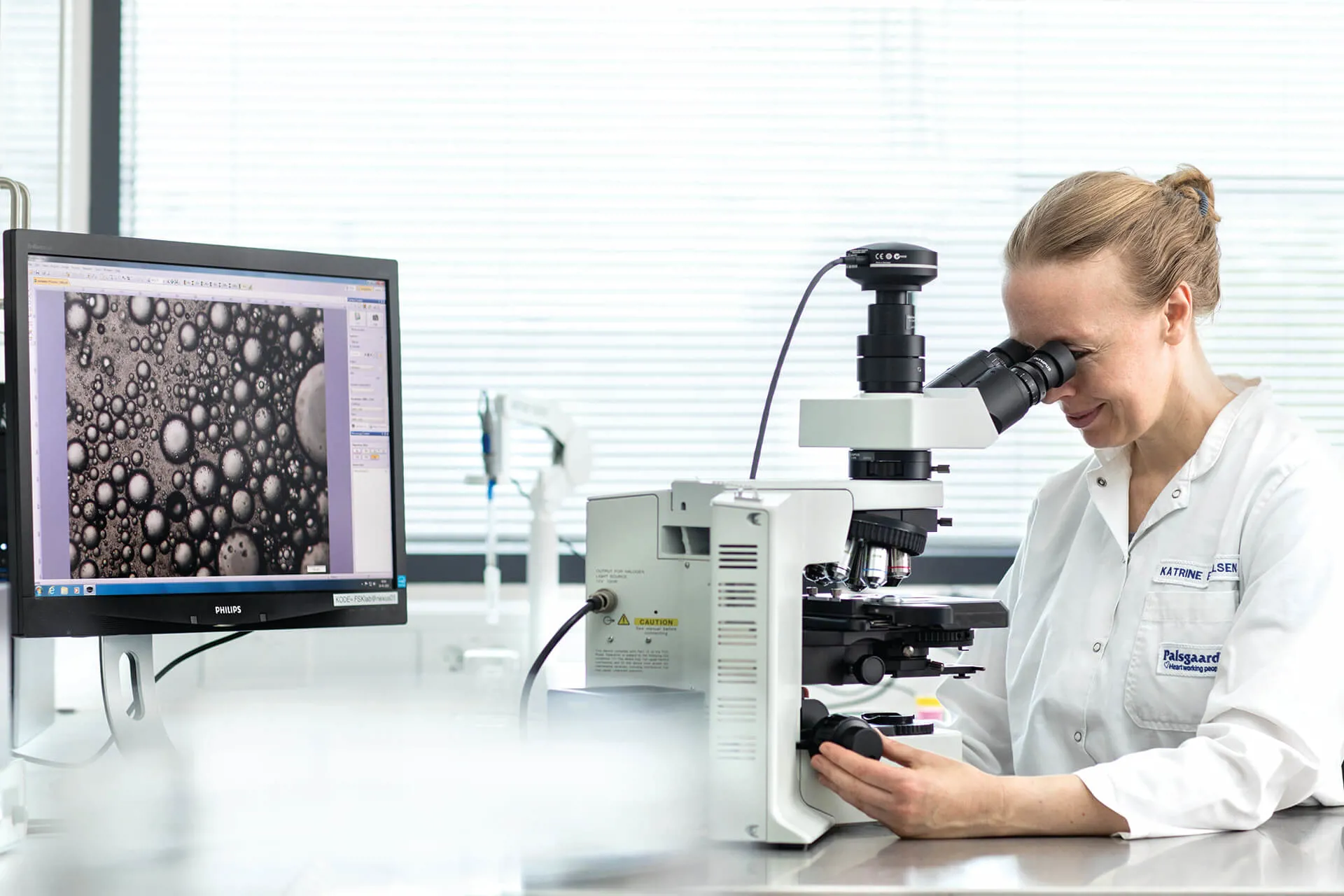
R&D SERVICES
The Nexus of Emulsifier Innovation
Nexus is an independent company engaged with research and development work for Palsgaard. Nexus serves Palsgaard with innovation, quality control and physical and chemical analysis service.
"We know from experience that any creative and efficient innovative environment must have wide margins and plenty of opportunities for thinking out of the box, which is why Palsgaard's research and development is conducted in an independent company, Nexus A/S. That doesn't mean we ignore customers' needs or market trends, or fail to track scientific progress. But it opens the door to innovations that can change things in ways we might otherwise not have imagined. And, of course, it all takes place within the context of food safety, responsibility and sound ethical practices."
— Claus Hviid Christensen, CEO Nexus A/S

Independent R&D
Nexus research & development helps to develop and improve emulsifiers, and makes the benefits of vegetable-based emulsifiers more widely applicable, bringing new capabilities and possibilities to the food ingredients industry as well as other industries that can benefit from the safe product profiles of vegetable-based emulsifiers.
Established in 1949, Nexus is owned by The Schou Foundation, whose integral values safeguard the impartiality of the research. There is, in fact, a significant degree of scientific freedom in this innovative company. Research may spring from pure curiosity - acknowledging that, more often than not, crazy ideas can lead to revolutionary discoveries.
A broad palette of expertise
Nexus works with interface-active ingredients, their production processes and basic applications. "Interface-active ingredients" are emulsifiers and stabilisers based on natural raw materials - including lipids - which, through chemical modification and/or physical separation, develop a structure with both hydrophilic (water-oriented) and lipophilic (oil-oriented) moieties present simultaneously. It is this structure that decides the interface-active properties of the ingredient.
Nexus activities lead to the development of new or improved ingredients from which multi-phase systems like food can benefit. The interface-active ingredients interact with the different components of the food and thus they influence the microscopic structure through physical interaction, which is then displayed through macroscopic qualities.
Nexus works with analytical chemistry and quality control with modern, well-equipped laboratories at its disposal. Activities also take the form of general quality control in relation to Palsgaard's ingredients production.
Currently employing around 40 people, mainly with a chemical or chemical-technical background, Nexus' R&D work is carried out in modern laboratories, including pilot plant facilities for upscaling and process development.
Nexus is divided into six separate sections:
Analysis laboratory
The laboratory features a series of analysis techniques utilized by Palsgaard. The work represents qualitative and quantitative evaluations established using modern methodology, as well as the continuous improvement and development of techniques, analyses and methods.
Quality control
Working with a range of methods to physically characterize foodstuff and ingredients, the laboratory includes equipment for the preparation of trials for test and control. This involves rheological and similar techniques. Powders, materials and liquid colours can also be analysed here.
Synthesis laboratory
The modern synthesis laboratory is adequately equipped with modern technologies and lab equipment to develop interface active ingredients and materials.
Pilot synthesis plant
Home to a series of pilot-scale equipment, this laboratory makes it possible to create interface active material on a semi-industrial scale. A chemical reactor plant and several different separation techniques, including short-path distillation columns, are also available.
Technology laboratory
The laboratory works with the physical manufacture of ingredients on a semi-industrial scale. Among other things, the laboratory features equipment and techniques for spray crystallization and drying, extrusion, grinding, emulsification etc.
Physical and interface chemistry laboratory
The laboratory studies physiochemical properties and mechanisms of interface systems like emulsions, dispersions and foams. The laboratory is equipped with facilities for a number of different techniques within interface chemistry and physics.


